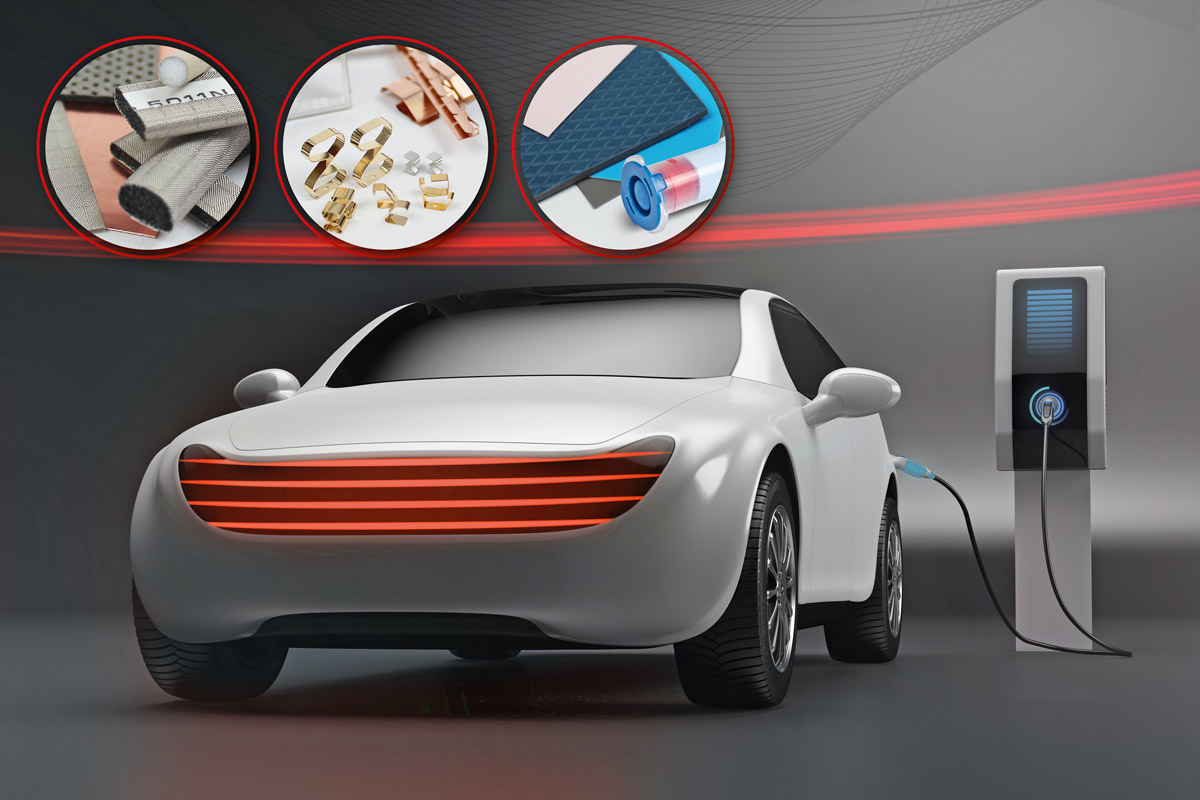Combined expertise in thermal management and Electro-Magnetic Compatibility helps qualify electric vehicles against emerging standards
Manufacturers of electromobility products are faced with a multitude of challenges as the technology develops and standards adapted and written. The moving target of electric mobility introduces increasingly complex tasks for the developers and manufacturers, particularly in the areas of electromagnetic compatibility (EMC) and thermal management. These challenges aren’t limited to the vehicle itself but as well as covering the entire vehicle and battery technology, they also introduce the charging infrastructure to the overall equation.
German EMC and thermal management specialist, MTC Micro Tech Components, is using the three decades of experience it has in these technologies, to provide services to the automotive industry to assist in overcoming the EMC and thermal management challenges that it faces.
Customised EMC solutions for e-mobility applications
In terms of electromagnetic compatibility, e-mobility places completely new demands on the automotive industry as well as the associated charging infrastructure. The coexistence of high-voltage (HV) and low-voltage (LV) electrical systems with spatially and electrically connected components requires consistent avoidance of electromagnetic interference.
In the electric motor for drive and energy recovery as well as in the traction battery with corresponding charging technology, large amounts of electrical power are converted that can lead to interference in the shape of emissions in a broad frequency spectrum. For example, inverters and converters cause considerable electromagnetic interference in the HV on-board network, which can have a negative effect on sensitive electronic components of the LV on-board network via coupling paths.
Shielding is a well established practice in reducing electro-magnetic interference and electric vehicles have larger numbers of potential emitters, which are packaged more densely in the vehicle. For this reason, shielding has attained a new level of importance in the prevention of interference between one component and others, where space is a significant constraint.
MTC offers EMC shielding materials such as conductive foam or fabric and aluminium gaskets with a wide variety of material properties, sizes and shapes for these diverse applications. Thus, almost any conceivable challenge regarding electromagnetic interference can be implemented together with the manufacturer.
In addition, EMC metal parts, such as contact springs, enable gaps and distances between housing parts or printed circuit boards to be bridged so that electrical contacting is permanently and reliably ensured. These and other EMC components are available as standard or customised products, so that the individual requirements of the application can be met optimally.
Thermal conductive materials for thermal management in electromobility
The electric powertrain, battery and charging technology and numerous electrical control and regulation systems generate heat losses during operation that must be effectively dissipated from the respective component. Thermally conductive materials such as gap pads with excellent form modification or dispensable 1K/2K gap fillers ensure seamless thermal connection between heat source and heat sink.
Insulating air gaps, unevenness, curvatures and tolerances are reliably closed and compensated. The optimised thermal management thus ensures the long-term reliability and performance of heat-sensitive electronics, components and modules. The silicone-based thermal management materials are also available as silicone-free variants.
With the right gaskets and insulating materials for management both thermal management and EMC issues, an overall approach can be taken based on off-the-shelf components or custom developed and manufactured items to meet most EMC and thermal management requirement for the electric mobility industry.
- UK manufacturing steps up to COVID-19 crisis - April 2, 2020
- Clustering Innovation - March 12, 2020
- A Global Monitor - March 6, 2020

